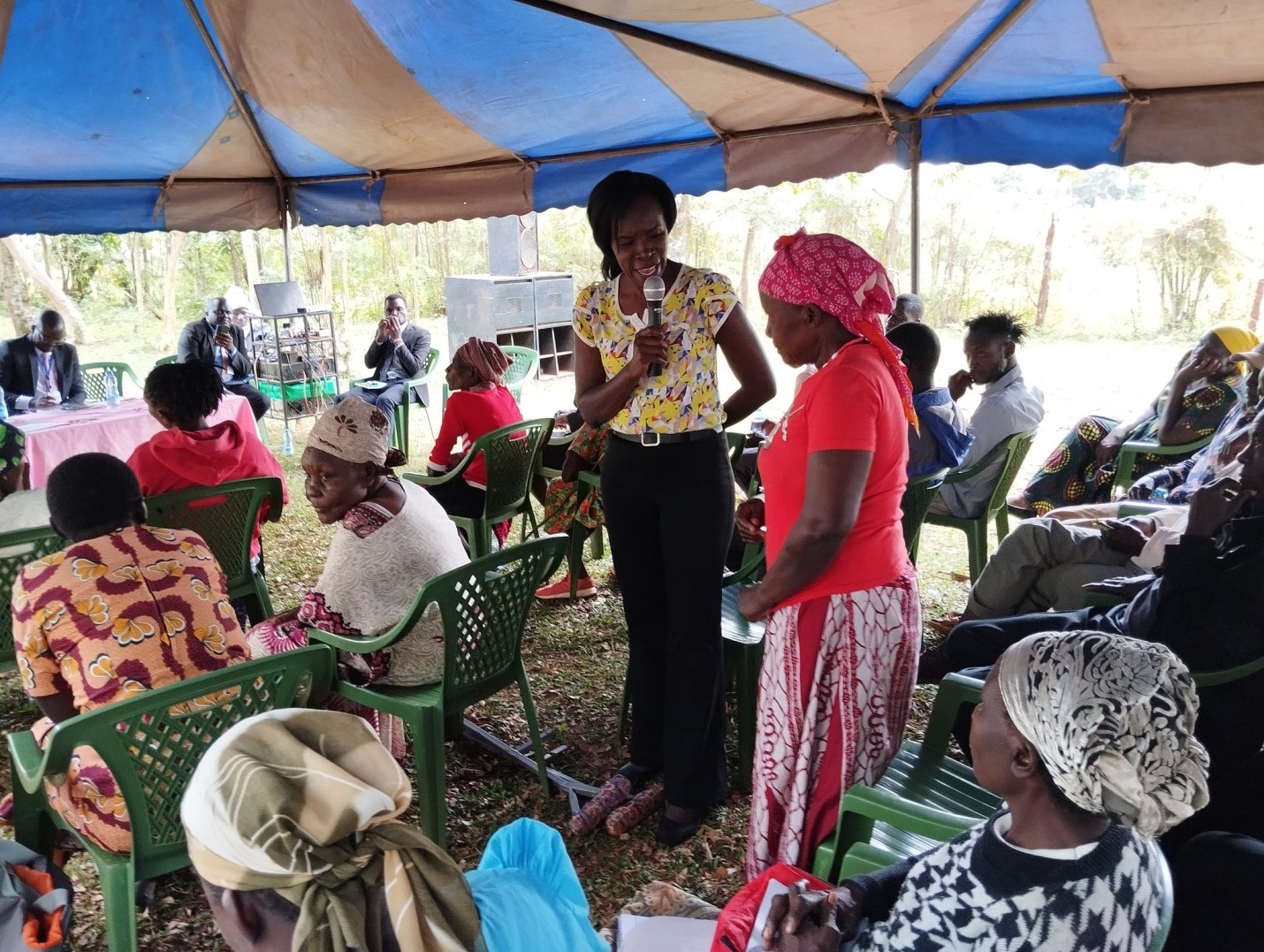
| |
EMPOWERING AFRICAN WOMEN: SIAYA MUUNGANO NETWORK PARTNERS WITH TRANSPARENCY INTERNATIONAL FOR LEGAL AWARENESS
Date: 16-10-2023
In many parts of Africa, women's rights to land ownership and access to justice have been longstanding challenges. In a region where traditional customs and patriarchal systems often prevail, women are disproportionately affected by these issues. However, there is a glimmer of hope on the horizon as organizations like Siaya Muungano Network (SIMUN) are working tirelessly to empower women with knowledge about their rights. SIMUN has forged a remarkable partnership with Transparency International Kenya to provide free legal services and educate the community, especially women, on land rights and access to justice.
The Power of Knowledge
Knowledge is power, and this partnership is shedding light on the often-overlooked issues that affect women's rights in the Kenyan context. SIMUN, a community-based organization in Siaya County, Kenya, recognizes that educating the community is a crucial step toward achieving gender equality and justice. By collaborating with Transparency International Kenya, they have taken a significant stride towards this goal.
Community Legal Awareness
One of the cornerstones of this partnership is the Community Legal Awareness program. SIMUN, with the support of Transparency International Kenya, organized events where community members, especially women, were provided with valuable information about their land rights and the avenues available to them for accessing justice. These sessions which happened on 30th of August 2023 within Siaya County, were designed to be inclusive and accessible, ensuring that even the most marginalized members of the community could benefit.
Key Issues Affecting Women's Land Rights in Africa
To fully appreciate the importance of this initiative, it's essential to understand some of the key issues that have plagued women's land rights in Africa:
• Unequal Land Ownership: Historically, women in Africa have had limited access to and control over land. Land ownership has been reserved for men, leaving women economically vulnerable.
• Inheritance Laws: Many African countries have inheritance laws that favour male heirs, depriving women of their rightful share of family land. These laws often perpetuate gender-based discrimination and inequality.
• Customary Practices: In rural areas, customary land tenure systems prevail, which can be biased against women. Customary practices often prioritize male heirs, making it difficult for women to claim their inheritance.
• Limited Legal Awareness: A lack of legal knowledge among women makes them vulnerable to land grabbing and property disputes. Without knowing their rights, women are unable to assert their claims effectively.
• Access to Justice: Even when women are aware of their rights, accessing the formal justice system can be challenging due to financial constraints, distance to courts, and social stigma.
The Role of SIMUN and Transparency International Kenya
The Siaya Muungano Network and Transparency International Kenya recognize the urgency of addressing these issues. Through their partnership, they are working together to bridge the knowledge gap, equip women with legal tools, and create an environment where women can assert their land rights confidently.
The collaboration between Siaya Muungano Network and Transparency International Kenya is a beacon of hope for women in Siaya County and beyond. By empowering women with legal knowledge, these organizations are not only advocating for gender equality but also contributing to stronger, more resilient communities. As more women become aware of their land rights and access to justice, the seeds of change are sown, promising a brighter, more equitable future for African women. This partnership serves as a testament to the power of collective action in bringing about meaningful change in the lives of marginalized communities.
Transparency International discusses some of the basic legal issues the community should know concerning land ownership.